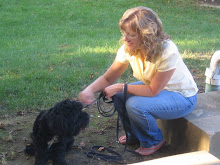That's another million dollar question.
I work mostly with seventh grade boys (well, one in particular - he has moderate to significant physical limitations and my suspicion is he has a few cognitive issues as well) and occasionally my job is to keep my charges on task and producing.
Well, when my pal--we'll call him Dan--is expected to work with anything that's straight up black and white, fact-based and then asked to recall what he has just been exposed to, he nails it. Ask Dan to read and then process information (where he's expected to analyze, synthesize or connect it to previous knowledge), forget it. And the sad part about this last feature of learning is that very few of those seventh grade boys can do that either.
Which brings me to my writing conundrum.
Without a real, confident sense of 'how', I'm expected to guide, coach and conjole my young charges through the process of reading, thinking, organizing and finally writing relevant written responses. It's a painful process at best.
The getting of facts and then turning them into complete thoughts (i.e., complete sentences) without the temptation of plagairizing is not too terribly bad. Boys like to list facts--one after the other--with some (and sometimes not) sense of logical order. But it's the introduction and conclusion paragraphs that get my boys in a bind. For most of them, they intuitively don't get the purpose of introducing (and then ending) their papers.
It's like their brains can't grasp the idea of communicating "Hi! This is my subject and it's just so great and these are a few really amazing eye-catching reasons why my subject is so great (but I'll try not to repeat myself or write my entire paper in this first paragraph!)" and "Goodbye! Wasn't that a great paper and I bet you're glad you now know so many important, never-knew-it-before-but-it's-so-important-to-know stuff about my subject (and again I'll try not to repeat myself or rewrite my paper in this paragraph!)"
It's enough to make me want to gnash my teeth, pull out my hair and dread the lowering of intelligence and educational standards of our future society.
But then I must take a deep breath and remember my own junior high experience. Because honestly, I can't ever remember being taught how to do this nebulus writing thing -- I just sort of had to figure it out on my own (and as an adult, I got lots of help from Pos and from reading good writing).
So, I have alot of curiosity/anxiety/energy tied up into this whole writing thing. I want to know how to teach it effectively and successfully, I want to be able to do it myself easily and successfully, and I want to know what's happening in a kid's brain (through all the developmental stages) when they are thinking/planning/executing their writing.
I have so many questions. This whole written communication process simply facinates me.
Subscribe to:
Post Comments (Atom)






7 comments:
5:46 a.m.?
Boys also like to take positions. "That Mrs. Pos is hot!" "Yeah man." They then proceed to list your attributes (I'll leave the details for the boys). Finally they draw draw a conclusion. "I'd do her." "Totally!"
There you have it introduction, explication and conclusion on a subject that motivates them.
But I'm left with wondering the "why's", the "how's" and all the other important details that make their written effort worth reading.
However, I love your summarization of how boys actually write -- you really nailed it [pun intended!]
And FYI - my blog clock must be off; I posted my entry here at work at around 9:40 a.m. -- I never consider those blog time postings to be accurate because of this quirky tendancy
Regarding when boys learn to write... Not in 7th grade. Not really. I didn't learn to really write until high school. (If I ever actually learned ;))
Regarding introductions and conclusions... In college, taking my first 300 level English course, I wrote a 10 page essay on Walden, and had to schedule a time with the professor (the chair of the department) to defend it verbally. He asked me "So, what do *you* think is wrong with it?" I replied, "No real introduction." His response? "I have read 35 of these essays. Sometimes it's refreshing to not have to slog through the same old introduction. That's not what's wrong with this essay..."
That man became my mentor that very day.
Personally, I think that example alone illustrates the very nebulous nature of writing--the absolute subjectivity of it--that makes learning to write/teaching writing/actually writing such a bitch!
To add to the discussion, when I'm writing a post, I start, proceed and finish. Then I go back and correct obvious errors. Then I'm done.
When I write for a living, interestingly, it almost always takes about two hours to produce a finished page, the time including research, thinking, writing and editing.
Though my original degree is in secondary education, I don't think writing has much to do with education other than the basics. You learn to write by reading and then attempting to write.
What I like about posting is that I'm less formulaic, though I think if you read through the posts, there's a bit of a formula.
Maybe it's time to break from the mold, though I'm not sure how to do that.
I had to chuckle a bit over your dilemma here. I'm gonna be 64 come October and organizing my thoughts, keeping on track with what I want to say, where I should put it, etc., has always been my biggest problem. Well, that and figuring out when to close up shop and shut up too!
Good luck in trying to get the kids to understand what you want them to do.
Jeni -
Thanks for the encouraging words and your humorous take on the writing process -- it really sounds kinda familiar :)
Post a Comment